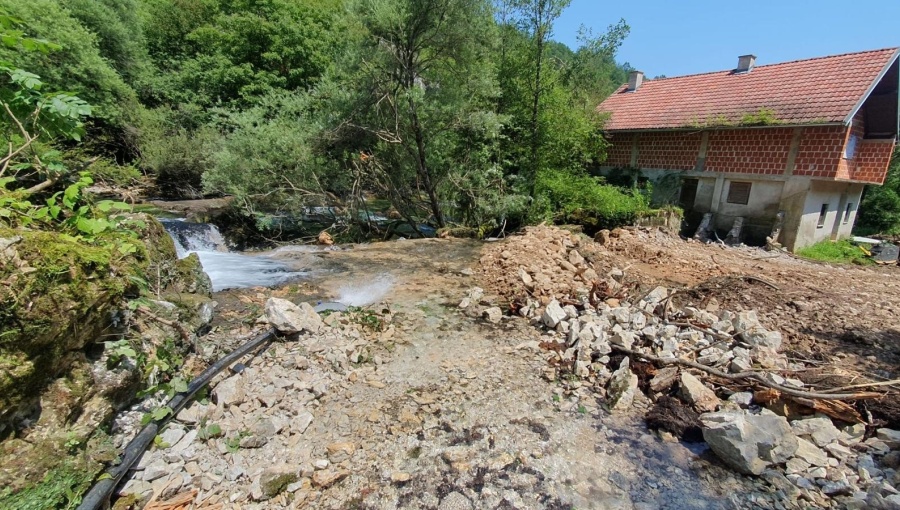Croatian authorities halt hydropower plant construction on Una river

Croatian authorities have halted the construction of a small hydropower plant on the River Una, following rising concerns over its environmental impact. The Nature Protection Inspection of Croatia's State Inspectorate initiated proceedings against the investors behind the Una-mlin project, located within the protected Natura 2000 ecological network area known as HR 2001069 Kanjon Une.
The news follows a month of protests by opponents of the hydropower project near the source of the Una River, which runs through both Bosnia & Herzegovina and Croatia.
Local residents expressed frustration with the lack of communication from the project developers, who, they said, began construction without informing the community. Issues similar to those faced in 2017, when the community successfully opposed mining activities in the area, have resurfaced. Concerns about water supply disruptions and the potential ecological fallout have fueled ongoing protests.
The project, a small hydropower plant with a capacity of 160 kW, was found to be in violation of the Nature Protection Act. The construction activities began without the necessary assessment of their impact on the ecological network area, which is home to a variety of sensitive habitats and species. In response, the authorities issued a ruling that prohibits any further construction activities.
The intervention was triggered by an investigation conducted by the Nature Protection Inspection, which sought expert advice from the Institute for Environmental Protection and Nature under the Ministry of Environmental Protection and Green Transition. The institute's report confirmed that the construction had already caused harmful effects on the environment, including potential damage to the targeted habitat types and native species populations.
The report further warned that continued construction could lead to more negative impacts on the conservation objectives, integrity of the ecological network, and overall biodiversity of the region.
Environmental NGO Green Action, which submitted a complaint about the project, welcomed the decision to halt construction.
"On July 15, Green Action submitted a written report to the State Inspectorate regarding the start of construction work on a hydroelectric power plant in the immediate vicinity of the Una spring," Jasna Sumanovac of Green Action wrote on Facebook.
"In the meantime, we have discovered numerous irregularities related to the amendments and additions to the location permit, for which, before submitting the request for the issuance of the decision on the amendment and/or amendment of the location permit in 2015, the procedure of the previous assessment of the acceptability of the intervention for the ecological network was not carried out in accordance with the provisions of the Nature Protection Act," she added.
The suspension of the Una-mlin project is not an isolated incident but rather part of a broader debate over the proliferation of hydropower projects across the Western Balkans. The region has seen a surge in hydropower developments, often in ecologically sensitive areas, driven by the need to increase renewable energy capacity.
There has been a backlash against construction of hydropower plants in Albania in particular, where activists have campaigned against any dams being installed on the Vjosa river.



Follow us online